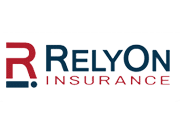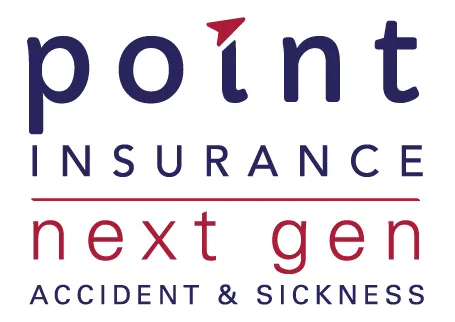Home > Business Insurance > Business Contents Insurance
Business Contents Insurance
Compare business contents insurance here with Savvy to find the best cover to protect your assets.
Author
Savvy Editorial TeamFact checked








We’ve partnered with BizCover to bring you a range of business insurance policies to help you compare them side by side.
Protecting your assets is one of the most important fundamentals of business insurance. Contents insurance can protect all the things you value most and which form an essential part of your business operation.
You can compare a range of business contents insurance policies right here with Savvy. Use our 100% free, no-obligation service to get a variety of quotes from some of Australia’s leading insurers. Answer just a few questions, choose your policy and get your assets covered with us today.
What is business contents insurance and what does it cover?
Business contents insurance is a type of business insurance that offers cover for your property, including your stock, against the risks posed by defined events which are listed in the policy. It will help your business recover from accidents, catastrophic natural events or malicious damage that may cause damage to your business contents. If your business does suffer one of these events, the insurance will cover the cost of replacing or repairing damaged contents and stock.
What is considered to be business contents and stock?
The items covered by business and commercial contents are those which may normally be found in retail premises, offices or factories. They include:
- the fixtures and fittings of your office, shop or commercial premises
- furniture, plant and machinery
- documents, records and paperwork
- your business trading stock
- goods held on consignment or loan
What insured events will I be covered for?
The insured events covered will vary from policy to policy. Naturally, not all insurance policies are the same, and each insurer will have its own list of insured events. However, the most common insured events in this type of policy are:
- storms, wind and lightning
- fire
- explosions
- earthquakes and impact damage
- water damage*
- malicious damage
- vandalism
- accidental damage
*Water damage:
When a policy specifies damage by water, be aware that may not include flood damage due to natural causes (such as rivers overflowing or sea storm surges). Such floods are frequently excluded from contents insurance. Water damage more commonly refers to water pipes bursting or leaking, liquids overflowing from a tank or container or sprinkler systems being activated in a room to extinguish a fire.
For example, if you operate a business in Brisbane and have insurance, you may not be covered if your property is flooded by the Brisbane River. However, if there was a fire at your premises and the built-in sprinkler system flooded your storeroom, you would likely be covered. In such a case, the fire would be the insured event and sprinkler water damage would be a secondary effect of the fire which damaged your stock.
What isn't usually covered by business contents insurance?
It is just as important to understand what isn’t covered by contents insurance. In terms of your business assets, these can include:
- the building itself (such as walls, floors and ceilings). Commercial buildings are usually covered by commercial property insurance
- cash and security documents (which would normally be held in a safe)
- business vehicles (which are usually covered by commercial vehicle insurance)
- any explosive material (such as pool chemicals, for example)
- animals and livestock
- crops or grown plants
The events which won’t be covered by your policy include:
- intentional damage
- wear, tear or gradual deterioration
- machinery or equipment breakdown
- faulty design
- poor workmanship
- deliberate switching off of the power supply
- pollution or asbestos discovery
- rust, mould or mildew
- damage caused by rodents or insects
- computer hacking, viruses or intrusion (usually covered by cyber liability insurance)
How do I compare business contents insurance?
The best insurance policy will cover you for the greatest number of events at the lowest price possible. Some of the areas to take a close look at are:
Inclusions
Look for a policy with all the inclusions you need and no exclusions in vital areas. The ideal insurance plan covers all potential threats. This is particularly important if you’re looking to insure your home business and office contents and equipment, in which case it’s particularly important to understand what is and isn’t included in your policy.
For a home business, there can be exclusions for items that are normally found in a home, such as chairs and tables, so check your policy carefully.
Maximum payout
Check the maximum payout for any one item matches the level of cover you require. Be wary of underinsuring your business contents, as this can be a costly mistake. If your business needs a higher maximum amount in one area of cover, it's always possible to tailor or customise an insurance policy.
Excess
An excess is the amount a policyholder will have to pay if they make a claim on their insurance policy. It’s the amount you’ll have to pay in the event you suffer an insured event and wish to make a claim. It is sometimes referred to as the uninsured portion of any claim. An excess can start at around $300 and go upwards from there.
Premiums
This is the amount you’ll be required to pay for your insurance per month. Most insurance policies specify the total cost of the insurance per year and break this down into monthly instalments, which are known as premiums. It’s important to compare premiums to ensure you’re getting the best deal on your insurance policy.
To compare insurance coverage, all you’ll need to do is answer a few questions about your business with Savvy. From there, you’ll receive instant insurance quotes from some of Australia’s leading insurance companies to help you pick the best for your business with more confidence.
How much does business contents insurance cost?
The cost of your contents insurance will vary from insurer to insurer and depend on several variables. These include:
- what industry you’re in
- the type of business you run
- the size of your business
- the state you’re in
- where your business is located – urban or rural
- the value of the contents you want to be insured
- whether you’re asking for contents insurance as a standalone policy or as part of a business insurance package
If you want a better idea of how much contents insurance will cost for your specific business, you can compare a range of quotes right here with Savvy to help get you started.
How do I work out how much business contents insurance I need?
Prepare an inventory of all your assets
It’s vital to have an accurate record of exactly what you wish to be insured. Some insurers may ask to see your inventory before offering a quote. Your inventory should be as specific as possible and include descriptions of items you wish to protect. For example, the description ‘four air conditioners’ may not be sufficient. A better description would be ‘four wall-mounted 20kW reverse-cycle Actron air conditioners’.
Carry out a stocktake
An inventory is a record of items to be insured, whereas a stocktake is a list of exactly how many of those items exist. For example, in your inventory, you may record ‘business computers’. Your stocktake may list ‘eight Dell desktop computers and 21-inch monitors’. A stocktake will include brand names, unit sizes and package sizes of items so the exact replacement item can be found.
Research replacement costs
Don’t guess how much it will cost to replace certain items. It’s well worth doing careful research before deciding on the replacement cost of an item. Remember that inflation can substantially increase the new cost of something you bought even a few months ago, so check your replacement figures are accurate and up-to-date.
Decide on the level of cover you require
It’s crucial to avoid underinsuring your business contents, as this can result in a disappointing payout if you do need to make a claim. Reducing the value of your stock in the hope of lowering your premiums can leave your business short if you suffer a disaster, as you may not be adequately compensated for your loss.
Compare quotes
The fine details of the policy cover will be found in a document called the product disclosure statement, or PDS. By law, all insurance policies must be supplied with a PDS. Read the document you’ve received carefully and compare all elements before deciding which insurance policy is the best one for your business contents. By comparing quotes through Savvy, you’ll get a good idea of exactly how much coverage you need.
Types of business insurance
Covers legal costs and compensation claims if a third party is injured or their property is damaged due to your business activities.
Protects against claims of professional negligence or errors in your work, providing financial coverage for legal costs and damages.
Provides coverage if a product you supply, sell or manufacture causes injury or property damage, covering legal costs and compensation claims.
It is mandatory in Australia and can cover the wages of employees who are unable to work due to injury or illness incurred while on the job.
Protects your business property and assets from damage or loss due to events like fire, theft, or natural disasters.
A comprehensive policy combining public liability, property, and contents insurance, tailored for small businesses.
Financial protection if your business is unable to operate due to a covered event, covering lost income and ongoing expenses.
Covers loss or damage to your business equipment, stock, and contents due to events like theft, fire, or natural disasters.
Provides income protection in case of injury or illness, offering financial support during the recovery period.
Protects directors and officers from legal claims related to their management decisions and actions, covering legal costs and damages.
Covers your business assets, including equipment, machinery, and inventory, against loss or damage caused by specified events.
Provides coverage for liability, loss, or damage related to the operation of drones or unmanned aerial vehicles (UAVs).
Insurance that covers the cost of professional fees associated with responding to tax audits, including accountant fees and legal representation costs.
Reimburses fixed business expenses if you're unable to work due to illness or injury, ensuring continuity of essential financial commitments.
This cover protects against claims of property damage or bodily injury by a third party, covering legal costs and compensation claims.
A package of insurance suitable for small businesses that combines various different types of insurance to protect business owners against multiple risks.
Covers loss or damage to your business equipment and machinery including portable items due to events like theft, fire, or accidental damage.
Provides coverage for loss or damage resulting from theft or burglary at your business premises, safeguarding your assets and inventory.
Protects against financial losses and liabilities arising from cyber-related incidents, including data theft, cyber attacks and ransomware demands.
Covers the cost of repair or replacement of glass windows and doors and other glass fixtures and fittings due to accidental damage or breakage.
Enjoy the Savvy difference when you compare insurance with us
100% free comparison service
Find the best possible insurance coverage for your business quickly and easily here with Savvy's 100% free comparison service.
Compare trusted partners
With multiple trusted insurance partners across the country, you can enjoy high-quality online comparisons all in one place right here.
Skip the hassle and save time and money by comparing with Savvy to get instant online insurance quotes for convenient comparisons.
More of your questions about business contents insurance
A business insurance package will often be the cheapest way to get contents insurance. If you bundle different types of insurance together, you can often benefit from a multi-package discount or a no-claims bonus applied to help reduce the size of your premiums. However, it’s important to avoid paying more for insurance you may not need as part of a package.
The phrase business assets insurance tends to cover a broader range of insurance than contents insurance specifically. With contents insurance, you are covering those items contained within your business premises. Assets insurance is a more general description and can include your property, vehicles, equipment and money, no matter where these assets are located.
Yes – just because you’re a sole trader doesn’t mean you don’t have valuable contents you need cover for. It is sometimes difficult to work out exactly what insurance you need for your business. You may just be starting up your business but still have invested in stock or materials which you can’t afford to lose. For example, if you’re a sole trader running a small business in Perth focusing on selling surf gear, your business contents insurance may still be needed to cover the value of 30 surfboards you have on consignment to sell in your shop.
Some contents policies may include cover for portable items, whilst others may not. This is one area where you need to compare the exclusions carefully to see what is and isn’t covered. If portable items aren’t covered or the policy specifies that only items located at the business premises are covered, it’s possible to get separate insurance cover for mobile tools and equipment you carry around with you.
Yes – you may still need contents insurance even though you don’t sell tangible products directly to the public. However, if you aren’t a retailer but run a company offering advice or a service to the public, such as a migration agent or a recruitment consultancy, you may still need contents insurance to cover your reception desk, advertising signs, office furniture and computers.
This may depend on the fine print in your policy and the type of contents cover you choose. New for old policies cover the replacement cost of an existing item with a brand-new version of the same item. They don’t take inflation or depreciation into account. However, there are policies which will just cover the cost of the item at the age and condition they are at the time of the claim, therefore taking depreciation into account.
Yes – almost all contents insurance includes cover for the theft of items. This assumes that a stranger broke into your premises and stole your goods. However, read the exclusions carefully, as theft may not be covered if the thief was one of your employees or was due to negligence in security such as forgetting to lock a gate or door or replace valuable items in a safe.
Business insurance by industry
Helpful guides on business insurance
Disclaimer:
Savvy is partnered with BizCover Pty Ltd (ABN 68 127 707 975, AFSL 501769) to provide readers with a variety of business insurance policies to compare. Savvy earns a commission from BizCover each time a customer buys a business insurance policy via our website. We don’t arrange for products to be purchased from these brands directly, as all purchases are conducted via BizCover.
Savvy does not compare all business insurance policies or providers currently operating in the market. Any advice presented above or on other pages is general in nature and doesn’t consider your personal or business objectives, needs or finances. It’s always important to consider whether advice is suitable for you before purchasing an insurance policy.
For any further information on the variety of insurers compared by BizCover or how their business works, you can read their Financial Services Guide.
















